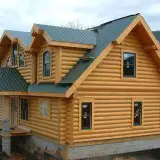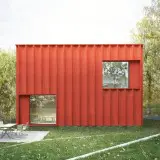Common Mistakes When Building A Home Which Can Demolish Your Dream
Building a house is a process which can squeeze all the energy out of you – plans on paper, tens of calculations and sketches in your mind which you then change the next day after, willy-nilly, you get advice from others, thoughts, doubts and, finally, buying construction materials and the whole concern which comes with the building itself. But, as it happens in the day to day life, stress doesn’t help at all, but on the contrary, it spoils plans. So try to avoid it by making thorough plans, doing proper research and talking to others who have gone through the same phase, while keeping a sprinkling of decisional autonomy. To help you a little, we have selected the common mistakes when building a home so you get off to a good start and enjoy the home in the end.
First of all, you need to understand that a house is a long term project. For this very reason, work with experts and professionals. Architects are qualified like lawyers and doctors, they go through university, sit exams and do years of apprenticeships to gain their licenses – they are the most qualified to work on the plans for your home, as are construction engineers, masons or carpenters. Not hiring an experienced and qualified architect can cost you when the plans are not shaping up to be what you want and need. In most cases, custom-designed homes require the services of a licensed architect.
Related to the first recommendation is a piece of advice meant to discourage you rom trying to do it yourself. Leave aside this impulse and the feeling you can do it better than others because it’s not like that. All the wasted time annuls the little savings you think you can get by working on your own, let alone the risks of an amateurish work. And if you think of hiring a tram, then ask for solid references. The folklore is full of unfortunate experiences so learn from other people’s mistakes. And speaking of the team, do not pay all the money up front!
Poor space and overall planning is another mistake. Bear in mind several basic things when doing the space planning: keep bedrooms away from noise sources, away from the garage and the central living areas, place the kitchen close to the main entryway, keep storage spaces within reach, do not overload the plan with underutilized rooms (just because it is in fashion to have a bonus room but you never use it) and make sure rooms are as much exposed to the sun as possible since natural light is truly helpful in many ways. And remember the best plan is the one that fits your budget realistically! The rest is trouble!
Don’t make changes after the building plans are finalized. This can throw the whole project off and trigger a domino effect of problems and costs. For example, wanting to move a doorway, may sound simple but the current position could be supporting a beam which if moved would mean that this part of the house would need to be fitted with an alternative support. In this case, the engineer may need to revise drawings to accommodate the change – which adds up in time and cost.
Do not cut corners! In other words, do not try to save money where such plans are not justifiable, especially when it comes to construction materials, the central element in the building process. Go for durable and aesthetic materials because a house is built for a lifetime…or even more!
Last but not least, keep in mind the house has to reflex a bit of your personality and stand out among many other constructions. Choose a design that harmoniously combine classic lines with modern shapes. Confide in large glazes because they are also practical and do not ignore outdoor relaxation areas, at least one of them covered, or corner balconies for two-side views.
Sources: Styleathome.com, Freshome.com, Trubuilthome.com
















Guide me……..I am TE CIVIL ENGINEERING student……….